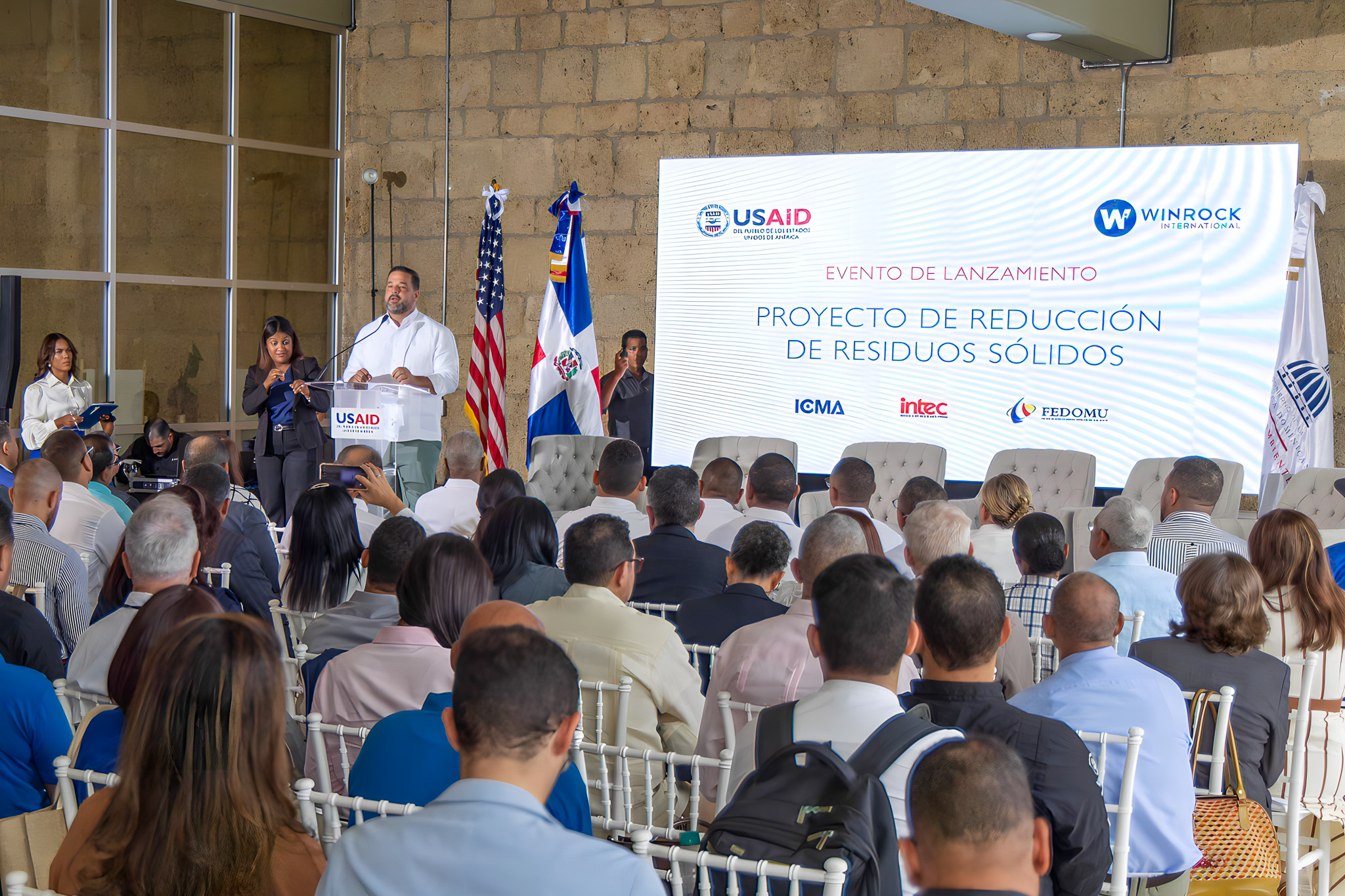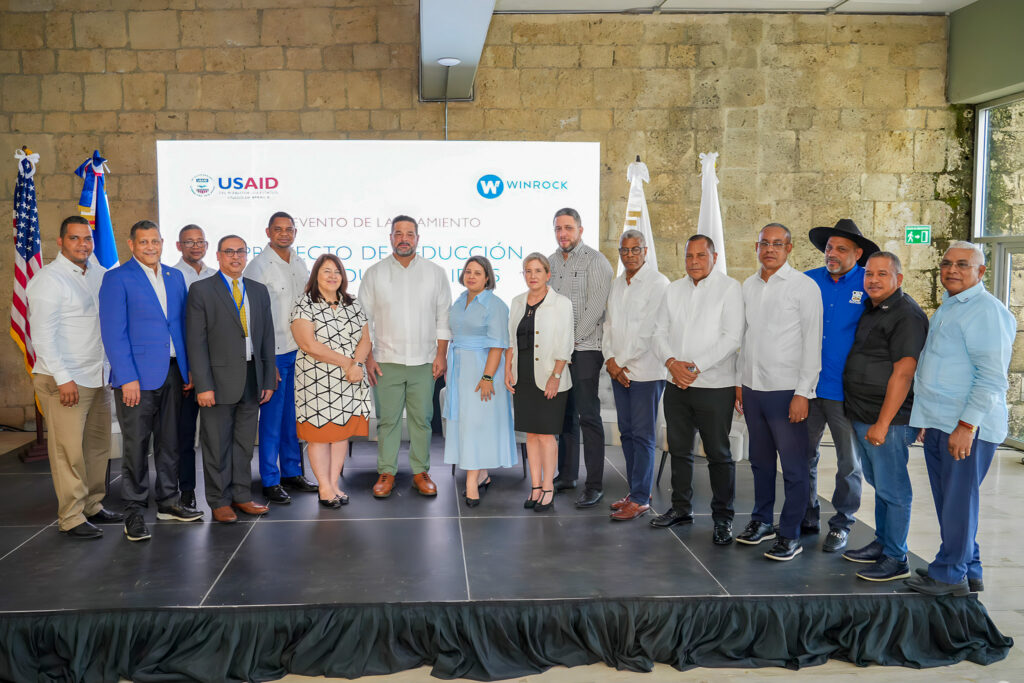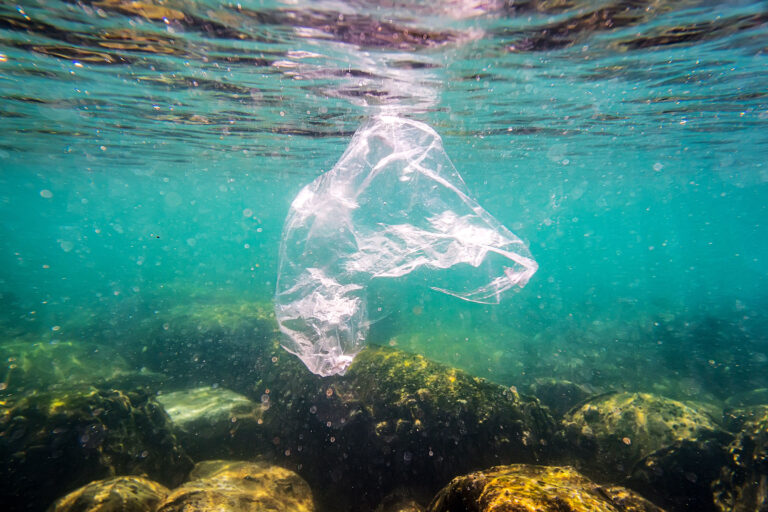
Reducing waste and supporting a circular economy in the Dominican Republic
To read the U.S. Embassy Santo Domingo’s announcement about the project launch, please click here.
The USAID/Dominican Republic Solid Waste Reduction Program was launched at a dynamic event in Santo Domingo on Nov. 6, 2024, attended by the Dominican minister of environment and natural resources and the USAID/Dominican Republic mission director. Implemented by Winrock with a consortium including local partners, the project seeks to reduce the amount of plastic waste discarded in the environment and that reaches the sea through rivers, as well as to minimize general waste by promoting a circular economy and the use of recycled materials.
In the Dominican Republic, despite advancements since the enactment of the General Law 225-20 of Integral Management and Co-processing of Solid Waste, the country still faces significant challenges in managing solid waste properly, which represents risks to both ecosystems and communities’ health. In response, this project’s mission is to reduce waste generation across communities and municipalities, with a focus on keeping the oceans clean and reducing greenhouse gas emissions.

The project launch event took place at the Fray Antón de Montesinos Monument, a well-known landmark in Santo Domingo. On the nearby beach, waste is deposited from the Ozama River into the Caribbean Sea, which emphasized the project’s urgency and importance.
Significant efforts were made to avoid producing waste during the project launch event, including using only reusable glasses and cutlery; producing no paper name tags or printed materials; and displaying reusable or digital banners and QR codes to communicate key information for the project instead of using paper handouts. A local musician provided entertainment during the event, showcasing various musical instruments made from recycled materials.
The SWR project will pursue three interrelated objectives: 1) Building capacity and strengthening governance at the national and municipal levels to implement best practices in Integrated Solid Waste Management; 2) Increasing community adoption of sustainable solid waste management practices; and 3) Establishing or expanding circular economy models in collaboration with the private sector.

The launch included panel discussions with representatives from the project’s implementing partners and government institutions. Panelists explored both challenges and opportunities in solid waste management. The experts emphasized that achieving the objectives of Law 225-20 requires not only regulatory instruments, technical skills and financial resources, but also a change of culture and behavior, beginning with each citizen’s actions.
The project is implemented by a consortium of nonprofit organizations, including ICMA, an international leader in capacity building for municipal management; FEDOMU, the Dominican Federation of Municipalities, which promotes the political, administrative and financial autonomy of local governments, helping them to manage their territories in a sustainable manner; and INTEC, a Dominican university with expertise in the environment, climate change and waste management.
The project’s launch was covered by El Caribe, a newspaper in the Dominican Republic; to read their article, please click here.
Related Projects

